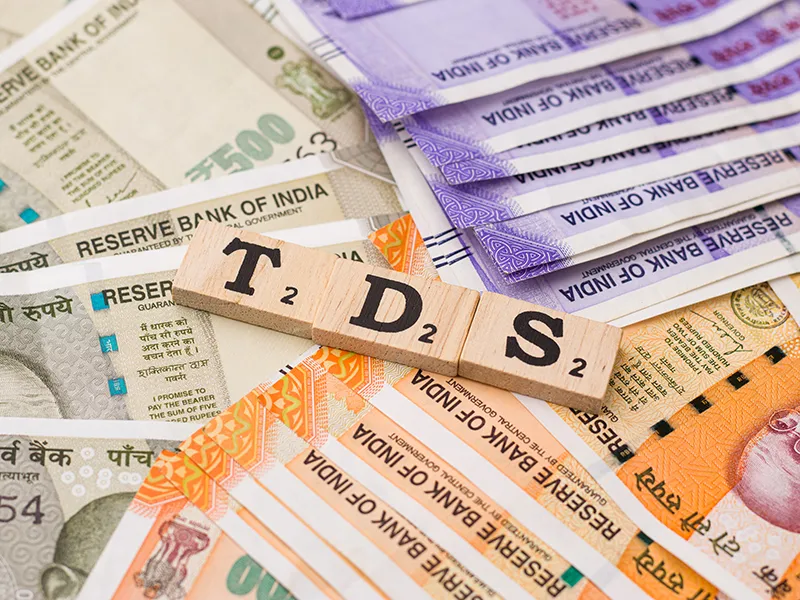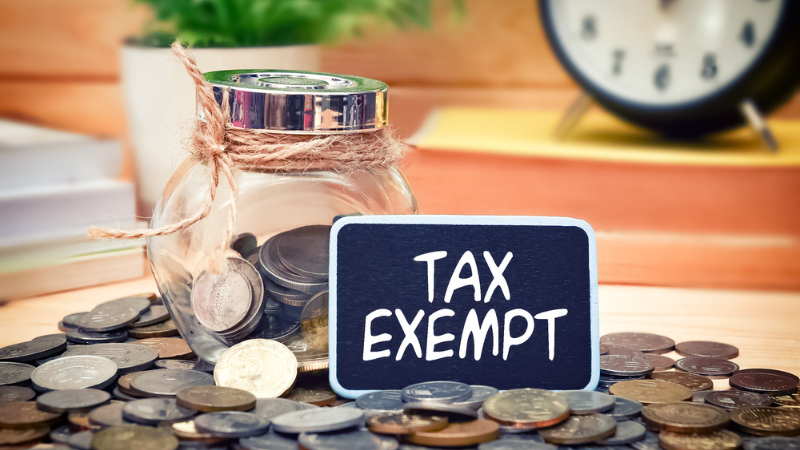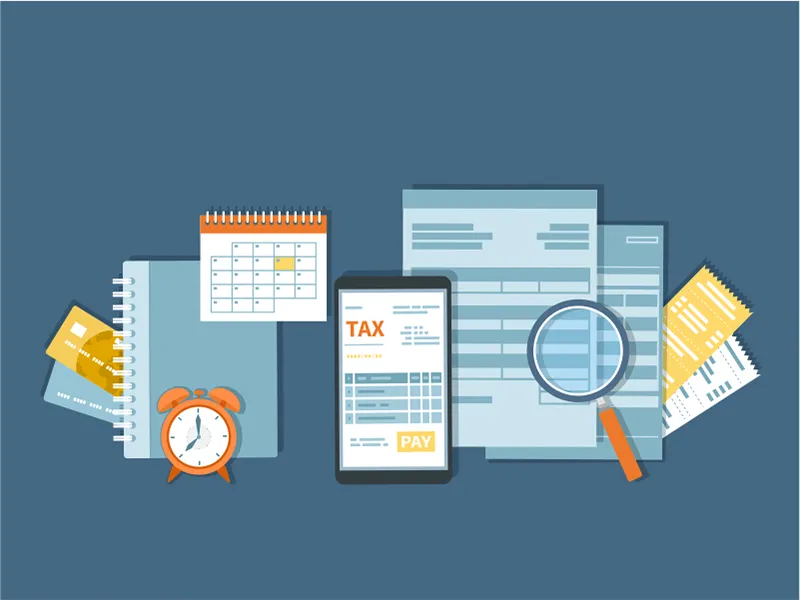
Have you been filing your income tax returns? If not, get ready to pay a higher Tax Deducted at Source (TDS). This comes with the introduction of a new section in the Finance Bill, 2021. As per this, taxpayers must now prepare for deduction and collection of tax at source at higher tax rates if an amount is paid or payable to them but it is observed that income tax returns have not been filed by the said taxpayers.
Read More – Exempted income and its relevance while filing returns
What is TDS on non filing of income tax return?
Non-filers of Income Tax returns should know that the new TDS rates applicable for them will be double the regular tax rates. The two new sections introduced in the Finance bill 2021 are discussed below:
Section 206AB
Section 206AB states higher tax rate for tax deduction at source (TDS) while making payments or collections. This is applicable to those who did not file their income tax return.
Section 206 CCA
This section states that a collection of tax at source (TCS) on receipts should be made from the buyers at higher rates than specified in the Income Tax Act.
How much TDS rate is applicable for non-filers of ITR?
For those who haven’t filed income tax returns, the applicable tax rate for specific payments will be twice the usual TDS rate. Here are the details:
TDS
Those who come under the purview of conditions laid in the above-mentioned sections will see a tax deducted at source (TDS) at below rates, whichever is higher:
- Two times the rates prescribed in the Income Tax Act.
- At the tax rate stated in the Finance Act
- At 5%
If a person has not filed an income tax return and does not furnish PAN, tax will be deducted or collected at 20% or as per rates stated in the section, whichever is higher.
TCS
Tax is collected at source (TCS) on higher of the below-mentioned:
- Twice the rate stated in the relevant Income Tax Act provisions
- At the applicable rate in force as prescribed in the Finance Act
- At 5%
Similar to TDS, if a person has non filed income tax returns and also does not furnish PAN, tax is to be collected at 20% or as per rates applicable under the section, whichever is higher.
How much TDS is deducted for non filing of IT returns?
Before some form of payments are made, a portion of the amount is deducted upfront as tax which is known as Tax deducted at source. It helps to ensure that the transactions are duly reported to the income tax department.
Until recently, TDS was deducted at a higher rate specifically for those who do not have a PAN. With the announcement of new TDS rules, there will also be a steeper TDS rate applicable for those who haven’t filed tax returns.
Which payments are affected by the new TDS on non-filing of ITR?
TDS is deducted before paying
- dividend
- fixed deposit interest
- service payments
- rent on property
- sale of property.
In case you haven’t filed income tax returns for the past two years, the TDS rates applicable will be double on these payments.
When is TDS deducted?
Tax is deducted/collected at source at higher rates than originally prescribed in the Act. This is, provided the transaction is concerning the person who meets the following conditions:
- If an individual has not filed the income tax return for immediately preceding two Financial Years (FYs) before the current FY in which tax has to be deducted,
- If the income tax return filing due date is expired (except belated returns filing date) and
- The total TDS and TCS is Rs. 50,000 or higher in each of the previous two years
These conditions do not apply to a non-resident who has no permanent establishment in India. Here, permanent establishment means a fixed place of business to be carried out wholly or partially.
Applicability of section 206AB
Section 206AB of the Income Tax Act, 1961 is applicable to certain taxpayers who have not filed their income tax returns or have filed them with a delay. The section mandates that the tax deduction or collection at source rates be higher for such taxpayers, ranging from 1% to 5%, depending on the type of income and the amount involved. The section applies to various categories of taxpayers, including individuals, Hindu undivided families (HUFs), firms, and companies. The purpose of this provision is to ensure that non-compliant taxpayers are subject to a higher tax rate and incentivize them to file their tax returns on time.
Non-applicability of section 206CCA
Section 206CCA of the Income Tax Act, 1961 is not applicable to taxpayers who have filed their income tax returns on time or have been subject to tax audit. The section imposes a higher rate of tax collection at source (TCS) on specified transactions for non-filing of income tax returns. However, taxpayers who have complied with the provisions of the Act by filing their returns on time or have undergone tax audit are exempt from the higher TCS rates under section 206CCA. This exemption is provided to incentivize timely compliance with tax filing and payment obligations and avoid penalizing compliant taxpayers.
How to avoid penalties
Timely filing of ITR is crucial to avoid penalties and legal consequences. Filing ITR before the due date (31 July for individuals and 30 September for companies) helps to avoid a penalty for delay in filing ITR. It also helps to avoid interest charges on the outstanding tax amount. Moreover, timely filing of ITR can help taxpayers to obtain loans, visas, and other financial services.
Conclusion
In conclusion, it is important for taxpayers to file their income tax returns on time and comply with the provisions of the Income Tax Act, 1961. Section 206AB of the Act is a powerful tool for the tax authorities to encourage timely compliance and penalize non-compliance. The higher tax deduction or collection rates under this section apply to various categories of taxpayers who have not filed their returns or have filed them with a delay. Therefore, it is advisable for taxpayers to be diligent in their tax compliance and avoid the consequences of non-compliance, including higher tax rates and penalties.
FAQs
Taxpayers who have not filed their income tax returns or have filed them with a delay may be subject to higher tax deduction or collection rates under this section. This includes individuals, Hindu undivided families (HUFs), firms, and companies.
The rates of tax deduction or collection at source range from 1% to 5%, depending on the type of income and the amount involved.
The purpose of this provision is to encourage timely compliance with tax filing and payment obligations and penalize non-compliance.
Taxpayers can avoid higher rates of tax deduction or collection under this section by filing their income tax returns on time and complying with other provisions of the Income Tax Act, 1961.


























